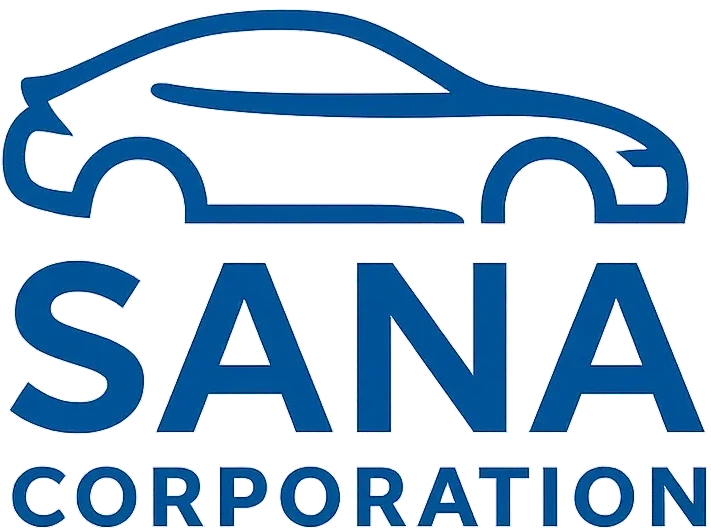The Japanese automobile export industry continues to thrive in 2025, with companies like Sana Corporation leading the way in providing comprehensive that ensure seamless international vehicle transactions. Understanding the complex regulatory framework governing vehicle exports from Japan is crucial for both exporters and international buyers seeking to navigate this lucrative market successfully.
Japan’s vehicle export system operates under stringent regulations designed to maintain the country’s reputation for quality and reliability. The foundation of this system rests on the mandatory Export Certificate (Yushutsu Masho), which serves as the vehicle’s official title document and is issued by Japan’s road police office upon application. This certificate contains critical information about the previous owner and complete technical specifications of the vehicle, making it one of the most important documents in the export process.
The vehicle deregistration process represents a fundamental requirement before any automobile can leave Japanese shores. All exported vehicles must be officially deregistered from Japan’s road system, effectively removing them from the domestic vehicle registry. This process ensures that vehicles cannot be illegally operated within Japan after export and provides legal clarity for international customs authorities.
Pre-shipment inspections have become increasingly important in the modern export landscape. Many destination countries now require specific inspection certificates such as JEVIC (Japan Export Vehicle Inspection Center) or EAA (East Africa Automobile) inspections. These comprehensive examinations check for roadworthiness, emissions compliance, odometer tampering, and critically important radiation levels—a requirement that became particularly stringent following the Fukushima disaster.
The documentation package prepared by professional exporters like those at Sana Corporation typically includes several essential components. The Bill of Lading serves as the primary shipping document, containing vessel information, voyage details, cargo specifications, and departure dates. The Commercial Invoice provides complete transaction details including customer information, pricing, and incoterms. For vehicles destined for the United States, the ISF form (International Security Filing) must be completed during the shipping process to comply with American customs requirements.
Radiation and environmental checks have become standard practice for Japanese vehicle exports. Multiple countries now require clean radiation certificates before accepting imported vehicles, reflecting ongoing environmental and safety concerns. Professional export services ensure all vehicles undergo appropriate testing and certification to meet destination country requirements.
The complexity of export regulations varies significantly depending on destination markets. Countries maintain different age restrictions for imported vehicles—Kenya permits maximum 8-year-old vehicles, while Sri Lanka restricts imports to 2-3 years depending on vehicle type. Bangladesh allows vehicles up to 4 years old, and Jamaica maintains a 5-year limit for cars and 6 years for trucks. These restrictions directly impact which vehicles can be successfully exported to specific markets.
Right-hand drive versus left-hand drive requirements further complicate the export landscape. Countries that drive on the left side of the road, including Kenya, the United Kingdom, and Jamaica, typically only accept right-hand drive vehicles. This requirement significantly influences vehicle selection and market targeting strategies for exporters.
Modern export operations benefit from digital documentation systems that streamline the traditionally paper-intensive process. Leading exporters now provide comprehensive digital packages including high-resolution photographs, detailed vehicle specifications, and translated documents to facilitate smooth customs clearance in destination countries.
The customs clearance process in Japan requires careful coordination between exporters, shipping companies, and customs authorities. Professional export services handle customs declarations, ensure proper documentation, and coordinate with port authorities to minimize delays and complications. This coordination becomes particularly important when dealing with special vehicle categories or modified automobiles that may require additional scrutiny.
Understanding Japan’s export regulations is essential for international buyers considering vehicle imports. Working with established companies like Sana Corporation provides access to expertise in navigating these complex requirements while ensuring compliance with both Japanese export laws and destination country import regulations. Their comprehensive services ensure vehicles meet all necessary standards before export.
The regulatory landscape continues evolving with changing international trade policies and environmental standards. Recent developments include updated tariff structures affecting exports to various markets and enhanced environmental compliance requirements. Successful navigation of these regulations requires ongoing expertise and professional guidance from experienced export service providers.
Professional export services extend beyond basic documentation to include comprehensive vehicle preparation, quality assurance, and customer support throughout the export process. This holistic approach ensures successful transactions and builds long-term relationships between Japanese exporters and international customers seeking quality vehicles from Japan’s robust automotive market.

